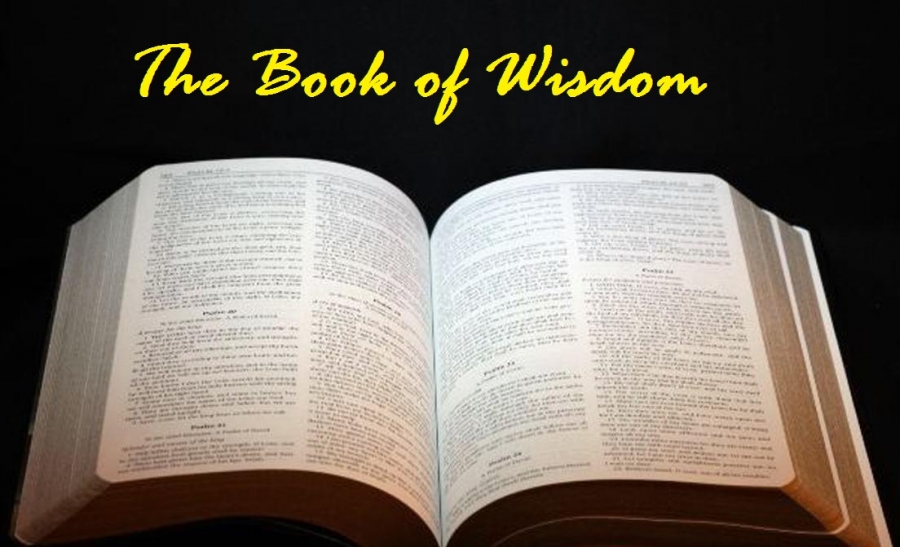Q&A: I find it strange that Saint Louis de Montfort applies quotes from some of the Wisdom books of the Old Testament not only to Jesus but also to Mary. If Jesus is the eternal and Incarnate Wisdom, how can he say that these texts apply also to Our Lady?
Father J. Patrick Gaffney, SMM
You are correct in saying that Fr. de Montfort applies some Wisdom texts both to Jesus and to Our Lady. For example, his lengthy quote of Sirach 2421—32 found in LEW 26—28, refers to the Eternal and Incarnate Wisdom, Jesus Christ. However, Sirach 24:13 in the Vulgate (RSV 24:8) is applied to Mary in TD 29, 31, 34, 201 and even in LEW 213.
Here are a few texts of Father de Montfort taken from Sirach 24 which he applies to Mary: “God the Father wishes Mary to be the mother of His children until the end of time and so he says to her, ‘Dwell in Jacob,’ that is to say, take up your abode permanently in my children” (TD 29). Montfort is clearly referring to the words of Sirach 24: “Then the Creator of all things gave me a commandment and the one who created me assigned a place for my tent. And He said, ‘Make your dwelling in Jacob and in Israel receive your inheritance.’ ”
“To Mary, God said: “Take Israel for your inheritance” (TD 31), evidently from Sirach 24. TD 34: “God the Holy Spirit wishes to fashion his chosen ones in and through Mary. He tells her, ‘My well – beloved, my spouse, let all your virtues take root in my chosen ones.’ ” The quote is basically from RSV Sirach 24:12: “So I took root in an honored people, the portion of the Lord who is their inheritance.”
Saint Louis de Montfort is very conscious of what he is doing when he applies a Wisdom text to Mary as we can tell from his citation from Proverbs 9 in TD 208: “Mary gives them (her faithful servants) the Son she has borne, the Bread of Life, to be their food. ‘Dear Children,’ she says in the words of Divine Wisdom, ‘take your fill of my fruits,’ that is to say, of the Fruit of Life, Jesus, ‘whom I brought into the world for you.’ ‘Come,’ she repeats in another passage, ‘eat the bread which is Jesus. Drink the wine of his love which I have mixed for you with the milk of my breasts.’ ”

There is, therefore, a difference—and a big one—separating Wisdom meaning Jesus, and Wisdom as applied to Mary.
Montfort is following a custom of the Church when he applies these texts to Mary. In its Liturgy, the Church uses these OT Wisdom texts for Mary and far more generously than Louis de Montfort. For example, the votive Mass of Mary, Mother of Divine Hope, has as its first reading, Sirach 24:9-12, 18—21. The beautiful votive Mass of Mary, Seat of Wisdom, has two possible first readings, one from Proverbs 8, the other from Sirach 24. Both are the words of Lady Wisdom.
The Church, in its introduction to the votive Mass of Mary, Seat of Wisdom, gives the following explanation for this custom: “Beginning with the 10th Century, we find in Masses of Our Lady, Seat of Wisdom, frequent readings from the Wisdom literature (or ‘sapiential books’), especially Sirach and Proverbs. In these texts the Church, though listening primarily to the voice of eternal Wisdom, hears also the voice of the Blessed Virgin Mary, for in them, according to the common understanding of the medieval writers, the Wisdom of God speaks in a certain sense ‘in the person of the Virgin.’ ”
Pius IX explained it this way: “The very words with which the Sacred Scriptures speak of uncreated Wisdom and set forth his eternal origin, the Church both in its ecclesiastical offices and in its Liturgy, has been accustomed to apply likewise to the origin of the Blessed Virgin, in as much as God, by one and the same decree, has established the origin of Mary and the incarnation of divine Wisdom “
And here’s a beautiful text ascribed to Odo of Kent (+1200), a Benedictine Abbot: “Philosophy is called the pursuit or love of wisdom. Mary is, therefore, the philosophy of Christians for whoever desire to find true wisdom must direct all their love and endeavor towards Mary. But Christ who is called the power and the wisdom of God is the true Wisdom. He is strictly the true Wisdom of Christians for to another beyond Him the Christian cannot go. Whoever desires to have this Wisdom must direct his study towards the Mother, for in Mary must he study who is to find Christ. For Through Mary, we come to Christ as through a mother to a son, through the Mother of mercy to Mercy Himself.”
There is, therefore, a difference—and a big one—separating Wisdom meaning Jesus, and Wisdom as applied to Mary. For Jesus is the
God-Man, Mary a pure (meaning in theology, no more than) creature. She is so filled with the life of the Eternal and Incarnate Wisdom, her destiny is so intertwined with His, she so radiates the Wisdom who is Jesus, that the words of Lady Wisdom can also be placed—all things considered—on her lips.


